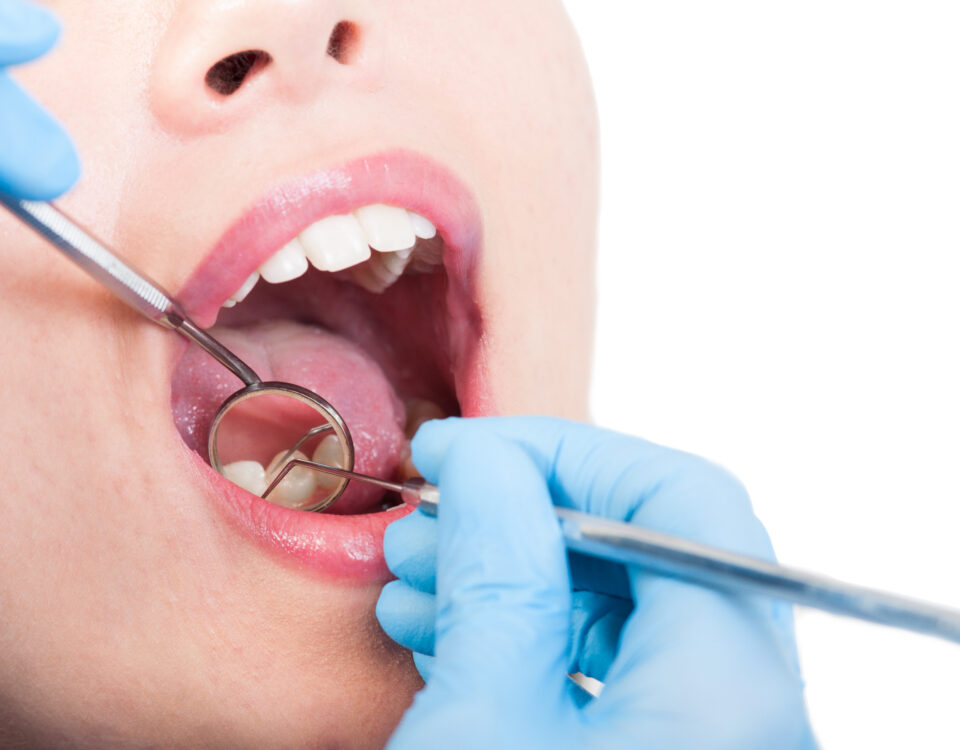Symptoms That Could Mean You Need a Root Canal

How to Make Your Teeth Whitening Results Last Longer
April 8, 2022
6 Reasons Not to Skip Your Dental Checkup
April 22, 2022Symptoms That Could Mean You Need a Root Canal

If you are experiencing any of the symptoms below, it is possible that you need a root canal. Don’t panic – we will go over each symptom and what it could mean. Keep in mind that these symptoms do not necessarily mean that you need a root canal. However, if you are experiencing multiple symptoms or they are particularly severe, then make an appointment with Mountain Aire Dentistry.
Root canal therapy is one of the most common dental procedures. This simple treatment can save your natural teeth and prevent the need for more extensive and expensive dental work in the future.
What is a Root Canal?
Root canal is a treatment to repair and save a badly damaged or infected tooth instead of removing it. The term “root canal” comes from cleaning of the canals inside a tooth’s root. Decades ago, these treatments often were painful. With dental advances and local anesthetics, most people have little if any pain during the procedure now. In fact, it’s probably more painful living with a decayed tooth. Root canal alternatives include extracting the damaged tooth, no further treatment, or replacing the tooth with a dental implant, bridge or removable partial denture.
Why is a Root Canal Needed?
Root canals therapy happens when the pulp, which is the soft tissue inside the tooth, has an infection. The inflammation or infection can by deep decay, trauma to the tooth, or a crack or chip in the tooth. A root canal can help save your natural tooth. Saving the natural tooth with root canal treatment has many advantages:
- Efficient chewing
- Normal biting force and sensation
- Natural appearance
- Protects other teeth from excessive wear or strain
Symptoms
There are many possible symptoms that could indicate you need this procedure. If you experience any of the following, contact your dentist to discuss whether or not you need a root canal:
- Severe toothache pain when chewing or applying pressure to the tooth
- Prolonged sensitivity to hot or cold temperatures even after the stimulus has been removed
- Discoloration of the tooth
- Swelling and tenderness in the nearby gums
- A small, pimple-like bump on the gums near the affected tooth
What Happens if a Root Canal is Not Performed?
Without treatment, the infection or inflammation will spread. This can eventually lead to an abscess, which is a pus-filled pocket that forms at the end of the tooth’s root. An abscess can cause serious damage to the surrounding teeth, jawbone, and gums. Additionally, an abscess can be very painful. If this happens, you will likely need to have the tooth extracted.
The Procedure
The procedure is usually performed by a dentist or endodontist, who is a dentist specializing in the treatment of the pulp. First, we will numb the tooth with an anesthetic. Next, we will place a rubber dam around the tooth to keep it dry and free of saliva. Then, we will make an opening in the tooth so that the pulp can be taken out. Once the pulp is removed, the inside of the tooth will be cleaned and sealed. Finally, a filling or crown will be placed on the tooth to restore it to its normal function.
After the Procedure
Most patients that have root canal therapy can immediately feel a lessening of their pain. Post-procedure pain and discomfort are easily remedied with common over-the-counter medications. Patients who are waiting for their permanent filling or crown are advised to avoid chewing on the treated tooth, to prevent any additional damage or pain before the treatment is completed. To ensure proper healing, make sure to brush and floss regularly and rinse with warm salt water to relieve occasional inflammation.
After a root canal, the tooth will be weaker than it was before. It is important to take care of the tooth and avoid chewing on hard objects or putting too much pressure on it. Additionally, it is important to brush and floss regularly to prevent further damage to the tooth.
It is also important to see your dentist regularly for checkups and cleanings. This will help ensure that the tooth remains healthy and does not become damaged again.
Make an Appointment with Mountain Aire Dentistry
If you think you may need a root canal, the best thing to do is to make an appointment with Dr. Chris Bockrath. He will be able to evaluate your symptoms and determine whether or not you need a root canal. Contact us today to schedule an appointment!
When you visit our Broomfield dental office, your smile is our top priority. Our Dentists invite you to experience the difference a warm and caring team can provide for you and your family. Enjoy a unique and comfortable dental experience designed to bring a healthier and happier smile back into your life. We invite you to call or visit our Broomfield dental office and discover the exceptional difference we offer to those we serve.













